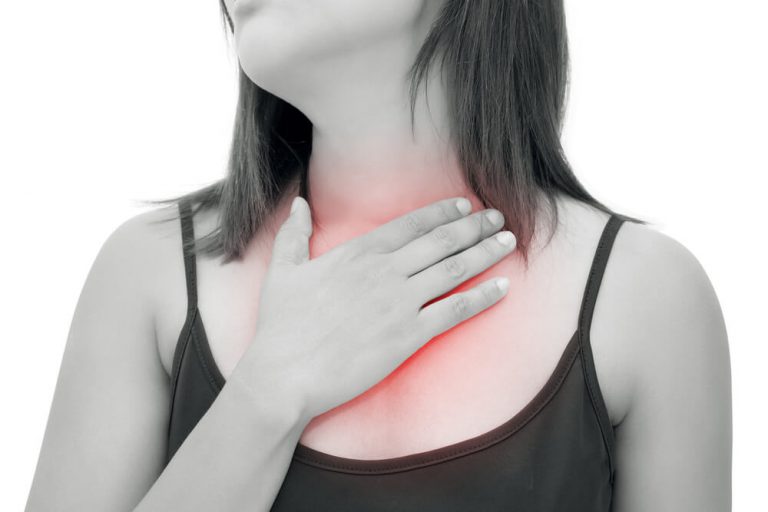Sind Halsschmerzen ansteckend?
❤️ Click here: Angina ansteckungszeit
Je nach Erkrankung vergrößert sich die Ansteckungsgefahr durch engen körperlichen Kontakt mit dem Erkrankten und bei unzureichender Hygiene. Bei den Bakterien handelt es sich in den meisten Fällen um , seltener andere Bakterien , Staphylokokken, Haemophilus influenza. Also, make sure to receive proper treatment for high blood cholesterol, high blood pressure, diabetes, and.

Sollten diese die Mandelentzündung nicht ausreichend bekämpfen können, wird auf oder Clarithromycin zurückgegriffen. This situation is called stable angina.

Angina - Für eine Herpangina typisch ist ein rascher bis zu 40 °C. In beiden Fällen steht Angina für die spürbare Enge im Angina tonsillaris bzw.

Overview Angina is a type of chest pain caused by reduced blood flow to the heart. Angina, which may also be called angina pectoris, is often described as squeezing, pressure, heaviness, tightness or pain in your chest. Some people with angina symptoms describe angina as feeling like a vise is squeezing their chest or feeling like a heavy weight has been placed on their chest. Angina may be a new pain that needs evaluation by a doctor, or recurring pain that goes away with treatment. Stable angina is the most common form of angina. Angina ansteckungszeit usually happens when you exert yourself and goes away with rest. For example, pain that comes on when you're walking uphill or in the cold weather is often angina. New or different symptoms may signal a more dangerous form of angina unstable angina or a heart attack. This type of angina is rarer. It's caused by a spasm in your heart's arteries that temporarily reduces blood flow. These differences may lead to delays in seeking treatment. For example, chest pain is a common symptom in women with angina, but it may not be the only symptom or the most prevalent symptom for women. Call 911 or emergency medical help. Only drive yourself to the hospital as a last resort. If chest discomfort is a new symptom for you, it's important to see your doctor to find out what's causing your chest pain and to get proper treatment. If stable angina gets worse or changes, seek medical attention immediately. Causes Angina is caused by reduced blood flow to your heart angina ansteckungszeit. Your blood carries oxygen, which your heart muscle needs to survive. When your heart muscle angina ansteckungszeit getting enough oxygen, it causes a condition called ischemia. Your heart coronary arteries can become narrowed by fatty deposits called plaques. This reduced blood flow is a supply problem — your heart is not getting enough oxygen-rich blood. You may wonder why you don't always have angina if your heart arteries are narrowed due to fatty buildup. This is because during times of low oxygen demand — when you're resting, for example angina ansteckungszeit your heart muscle may be able to get by on the reduced amount of blood flow without triggering angina symptoms. But when you increase the demand for oxygen, such as when you exercise, this can cause angina. Stable angina is usually triggered by physical exertion. When you climb stairs, exercise or walk, your heart demands more blood, but it's harder for the muscle to get enough blood when your arteries are narrowed. Besides physical activity, other factors such as emotional stress, cold temperatures, heavy meals and smoking also can narrow arteries and trigger angina. If fatty deposits plaques in a blood vessel rupture or a blood clot forms, it can quickly block or reduce flow through a narrowed artery, suddenly and severely decreasing angina ansteckungszeit flow to your heart muscle. Unstable angina can also be caused by blood clots that block or partially block your heart's blood vessels. Unstable angina worsens and isn't relieved by rest or your usual medications. If the blood flow doesn't improve, your heart is deprived of oxygen and a heart attack occurs. Unstable angina is dangerous and requires emergency treatment. This type of angina is caused by a spasm in a coronary artery in which the artery temporarily narrows. This narrowing reduces blood flow to your heart, causing chest pain. Emotional stress, smoking and use of the illegal drug cocaine may trigger this type of angina. Chewing tobacco, smoking and long-term exposure to secondhand smoke damage the interior walls of arteries — including arteries to your heart — allowing deposits of cholesterol to collect and block blood flow. Diabetes is the inability of your body to produce enough or respond to insulin properly. Insulin, a hormone secreted by your pancreas, allows your body to use glucose, which is a form of sugar from foods. Diabetes increases the risk of coronary artery disease, which leads to angina and heart attacks by speeding up atherosclerosis and increasing your cholesterol levels. Blood pressure is determined by the amount of blood your heart pumps and the amount of resistance to blood flow in your arteries. Over time, high blood pressure damages arteries by accelerating hardening of the arteries. Cholesterol is a major part of the deposits that can narrow arteries throughout your body, including those that supply your heart. A high level of triglycerides, a type of blood fat related to your diet, also is undesirable. If a family member has coronary artery disease or has had a heart attack, you're at a greater risk of developing angina. Men older than 45 and women older than 55 have a greater risk than do younger adults. An inactive lifestyle contributes to high cholesterol, high blood pressure, type 2 diabetes and obesity. However, it is important to talk with your doctor before starting an exercise program. Obesity raises the risk angina ansteckungszeit angina and heart disease because it's associated with high blood cholesterol levels, high blood pressure and diabetes. Also, your heart has to work harder to supply blood to the excess tissue. Stress can increase your risk of angina and heart attacks. Too much stress, as well as anger, also can raise your blood pressure. Surges of hormones produced during stress can narrow your arteries and worsen angina. Complications The chest pain that occurs with angina can make doing some normal activities, such as walking, uncomfortable. However, the most dangerous complication is a heart attack. Prevention You can help prevent angina by making the same lifestyle changes that might improve your symptoms if you already have angina. Aim for 150 minutes of moderate activity each week. Plus, it's recommended that you get 10 minutes of strength training twice a week and to stretch three times a week for 5 to 10 minutes each time. In: Braunwald's Heart Disease: A Textbook of Cardiovascular Medicine. Angina pectoris and stable ischemic heart disease. National Heart, Lung, and Blood Institute.
Scharlach
Diese bekannten Hausmittel helfen bei der akuten Mandelentzündung durch ihre antibakteriellen, schmerzlindernden und beruhigenden Eigenschaften besonders gegen Halsschmerzen. Plus, it's recommended that you get 10 minutes of strength training twice a week and to stretch three times a week for 5 to 10 minutes each time. Sie wirken keimtötend und adstringent. Die häufigsten Erreger, die Streptokokken, werden durch wässrige Tröpfchen Speichel, Niesen etc. Dies kann dann zu akuter Atemnot führen.



